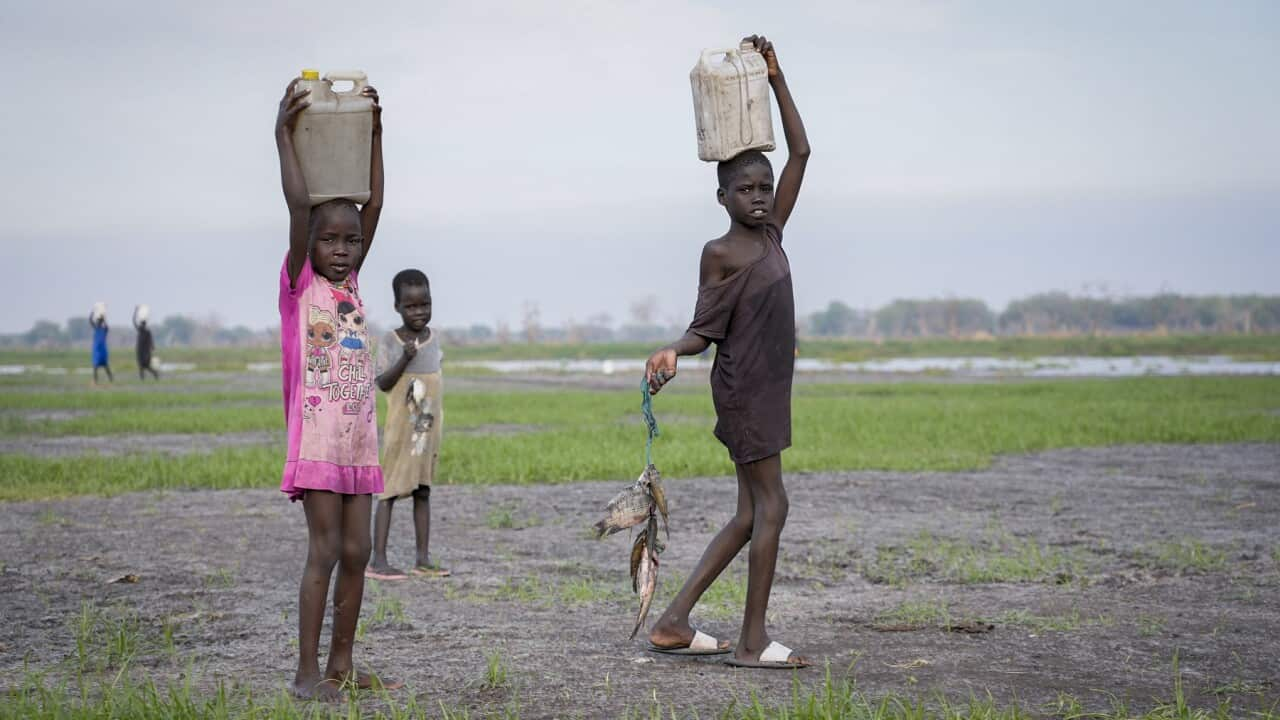TRANSCRIPT
Thousands of families are being displaced and forced across borders into Chad and South Sudan each week, adding to already dire humanitarian situations in both countries and creating the world’s largest displacement crisis, according to the UN's World Food Programme.
This is exacerbating the already dire humanitarian situations in both countries and leading to what is now considered the world's largest displacement crisis.
Michael Dunford is the organisation's East Africa regional director.
"People are leaving Sudan, fleeing Sudan because of the war, because of the conflict, and they are ending up here where WFP and other agencies are providing basic support but it’s an extraordinarily challenging circumstance."
Mr Dunford says people are being asked to travel further in order to receive better aid.
"People , as you see, arrive with very little if anything at all. They are being registered, they are being given basic support and then they are being asked to move further into South Sudan.”
Annabel Symington is a World Food Programme representative.
She says the time to act is now.
"In both these countries the rainy season is coming soon and with that it's going get even harder to reach people. We need to be prepositioning assistance right now to make sure that we can sustain a response. We are unable to do that, and on top of that Chad, South Sudan, they are dealing with their own hunger crises. So this is really crisis building on crisis, and we just don’t have the resources to respond at the scale needed.”
The AFP says more than 500,000 fleeing the war in Sudan have crossed the border into the South Sudanese town of Renk, since the outbreak of fighting last April.
One thousand to 2,000 continue to cross every day.
In South Sudan, refugees from Sudan now make up 35 per cent of those facing severe hunger, despite making up only three per cent of the population.
Malnutrition rates among children in transit camps are rapidly increasing.
According to the WFP, approximately four per cent of children under five entering South Sudan, are malnourished, but at the Renk refugee camp, this figure jumps to one in four.
Mehida Ibrahim is among the displaced at the refugee camp.
"We came by bus. It took us two days to reach here. ... We came from Sudan because of the war, we came to look for a place to stay and settle. ... What we need is food. The immediate support we need is to eat to be able to survive."
Aachal Chand is a WFP nutritionist at the Renk camp.
“The rates of malnutrition are high. We are finding that the most impacted are the women and children and that’s why a range of services available at the border immediately when they're crossing but also when they move to the transit centre."
Sudan is facing one of the world's fastest unfolding crises due to the conflict between the SAF and the RSF which began 10 months ago.
According to the Sudan Situation Report published by the U-N Office for the Coordination of Humanitarian Affairs, about 65 per cent of Sudan's population lack access to healthcare, while 70 to 80 per cent of hospitals in conflict-affected areas are no longer functional.
Around 10,500 suspected cases of cholera, including 292 deaths, have been reported from nine Sudanese states as of the 27th of January.
There are also multiple disease outbreaks ongoing in several states, including 4,650 cases of measles with 106 deaths, malaria, and dengue fever.













